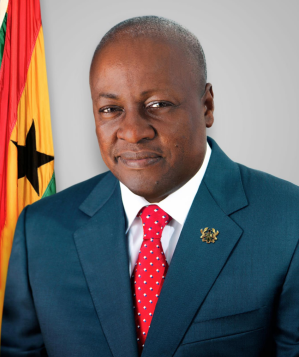
Christian leaders in Ghana have hailed the peaceful and largely uneventful general elections held on Saturday, 7 December, 2024 as a “sign of maturity” following the win by opposition candidate Dr. John Dramani Mahama over his closest opponent, current Vice President Dr. Mahamudu Bawumia of the New Patriotic Party.
Reverend Professor Johnson Kwabena Asamoah-Gyadu, The Presiding Bishop of the Methodist Church Ghana said that accepting the outcome of the elections by political parties was a sign of maturity in the democratic governance of the country.
“In an election, one will end up a winner, and the other will end up a loser. So, if you win, celebrate the win but be measured with it. If you lose and want to contest it, use the laid-out procedures, and be prepared to accept the outcome,” said Rev. Asamoah-Gyadu.
The initial results released on Saturday showed that Mahama’s National Democratic Congress (NDC) had an unassailable lead. Bawumia conceded defeat on Sunday 8th saying that available results collated from the polls clearly showed that Mahama had won the elections.
“Let me say that the data from our own internal collation of the election results indicate that former President John Dramani Mahama has won the presidential election decisively.
“The NDC has also won the parliamentary election. Even though we await the final collation of a number of seats, I believe ultimately these will not change the outcome. I am making this concession speech before the official announcement by the electoral commission to avoid further tension and preserve the peace of our country,” said Bawumia.
“The people of Ghana have spoken, the people have voted for change at this time and we respect it with all humility,” Bawumia said in his concession speech.
NPP Vice Presidential candidate Dr. Matthew Opoku Prempeh said that Ghana is a country chosen by God “to shine to the world, and while that is a great blessing, we must recognize that without prayer, evil can befall the country.”
In the run up to the elections, religious leaders from different denominations had urged congregants and faithfuls to avoid making the election a religious issue pitting Bawumia, a Muslim and Mahama, a Christian, in a country where 71% of the 34 million people are Christians.
The Ghana Pentecostal and Charismatic Council (GPCC) cautioned that the elections was not a religious contest, emphasizing that politics must foster an inclusive environment “where decisions are made based on reason, evidence, and the common good, rather than on religious, ethnic, gender or social classes.”
The council said that it was unacceptable that some parliamentary candidates and religious leaders were encouraging voting along religious lines. “It must be stated that none of the presidential candidates is standing for election on the ticket of a religious ideology.”
“All the political parties and independent candidates are contesting on the basis of policies and ideas that will bring socio-economic and other benefits to the citizens and the nation as a whole. The leadership of GPCC encourages every Ghanaian who is qualified to vote to do so as a civic responsibility to God and country. We therefore admonish that all prospective voters should be guided by their conscience, trust, confidence and godly values they identify in the candidate of choice,” advised GPCC days to the elections.
The Ghana Catholic Bishops’ Conference (GCBC), on their part, in a pastoral letter dated 30 November, 2024, urged the electorate not to be just voters but to be “active citizens” by promoting candidates who have the best interest of the people and nation, and especially “the poor, the marginalized and the vulnerable”.
Political scientist and lecturer Thomas Prehi Botchway said that religion has played a significant role in Ghana’s democratic processes. Since 1992 when the country returned to constitutional rule, candidates have spent a lot of their time visiting churches and mosques to try and sway voters to their political affiliations.
“Religion plays an important role in elections because religious groups have stood against brutalities of military regimes in the past. They’ve also played an active role in social justice issues,” Botchway told the Conversation.
Ernest Adu-Gyamfi, Chairperson of Ghana’s National Peace Council, in a recent interview with The Africa Report, called for cautious electioneering. “Anything related to religion, tribe, and race are triggers of conflict. We must guard the peace, security, and stability of our country,” Adu-Gyamfi said.
Despite the religious and ethnicity narratives, the economy dominated campaign promises of both candidates who promised to fix the high cost of living and unemployment. Mahama, 65, previously served as the President from 2012 to 2017.
He lost his re-election bid to the outgoing president, Nana Akufo-Addo, and then again in 2020 when Akufo-Addo won his second term. His third attempt at election on Saturday, saw him breaking the jinx, as he will now become Ghana’s President.
With this victory at the polls, Dr. John Dramani Mahama will be sworn into office as president of Ghana in January 2025.





